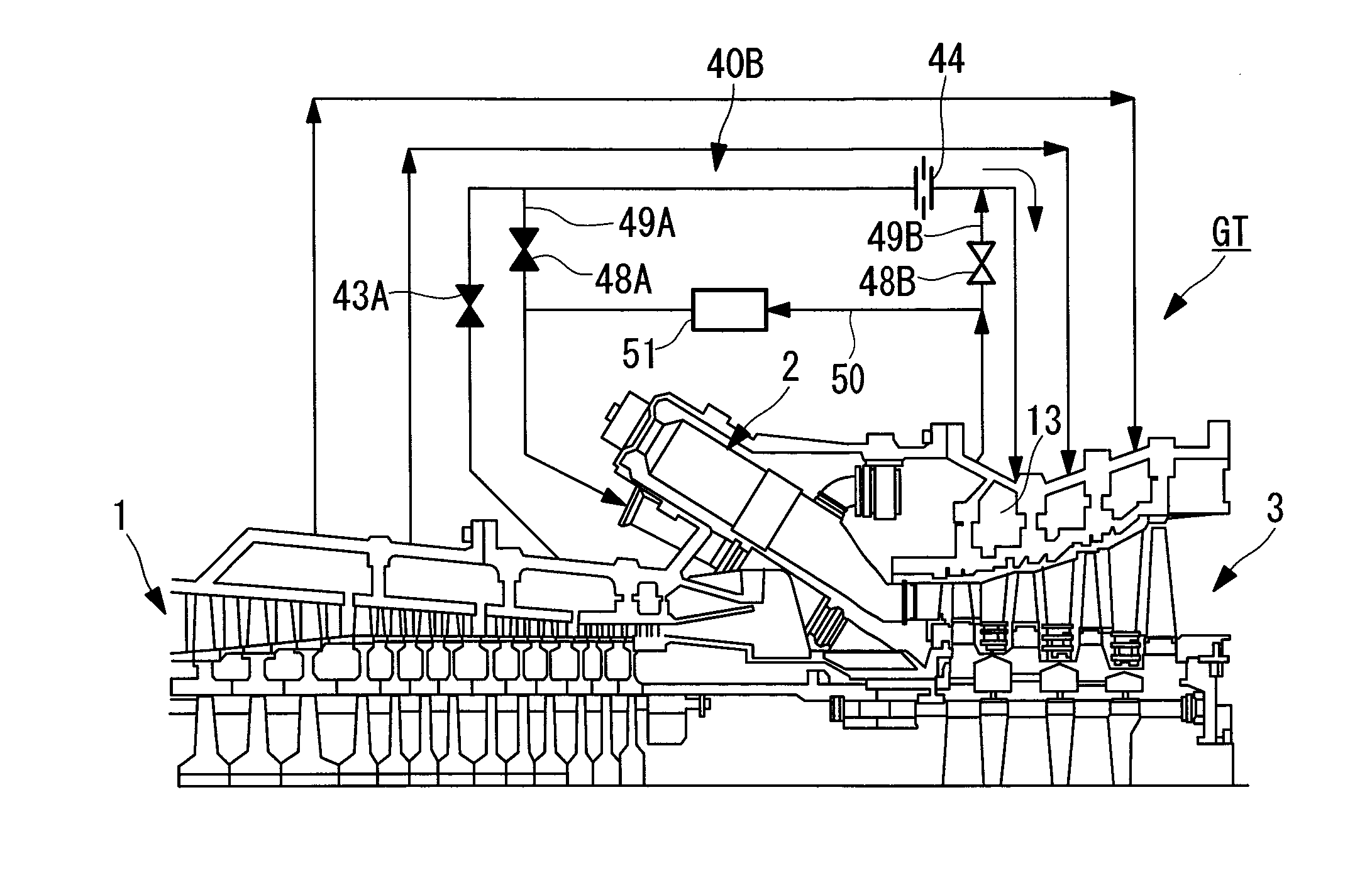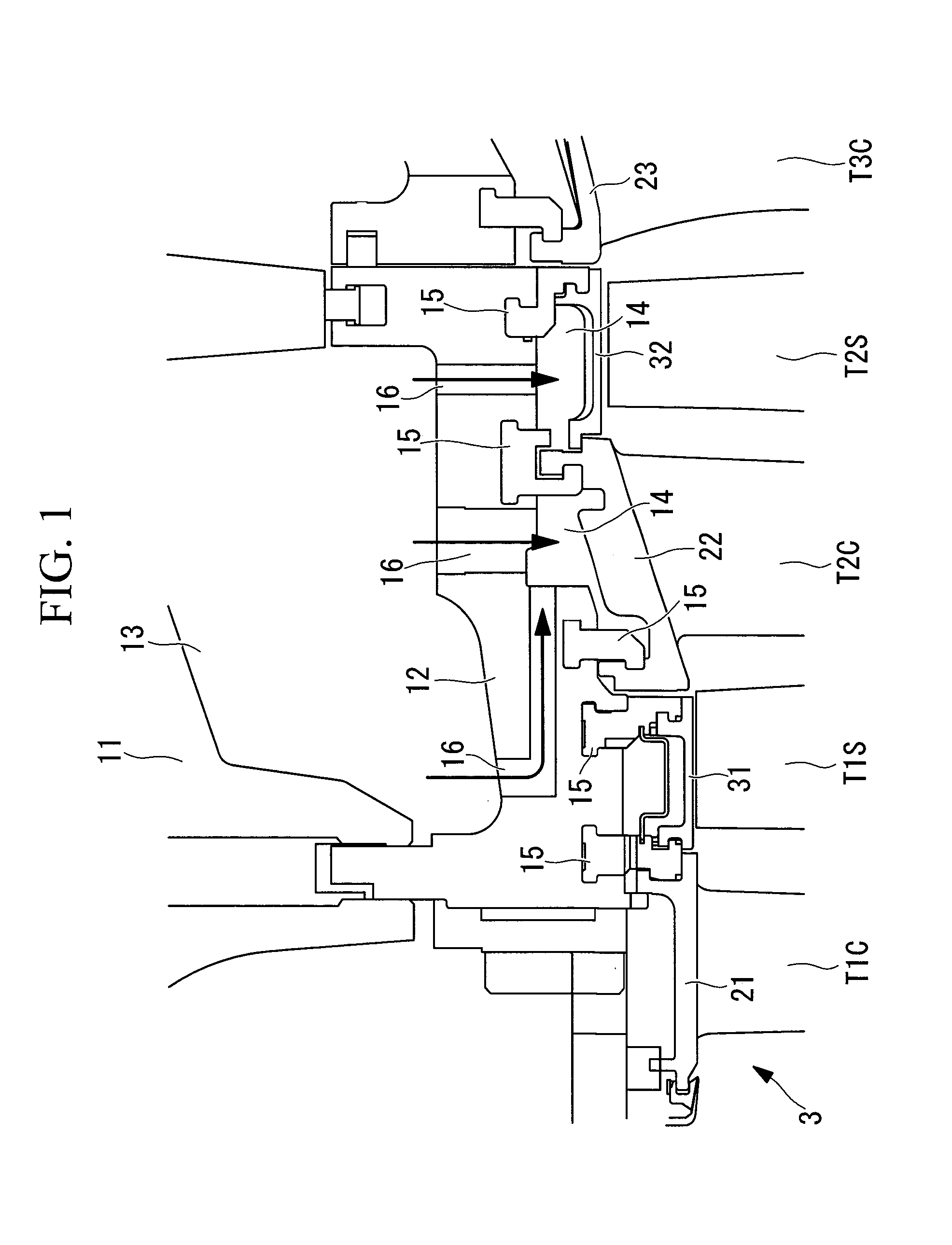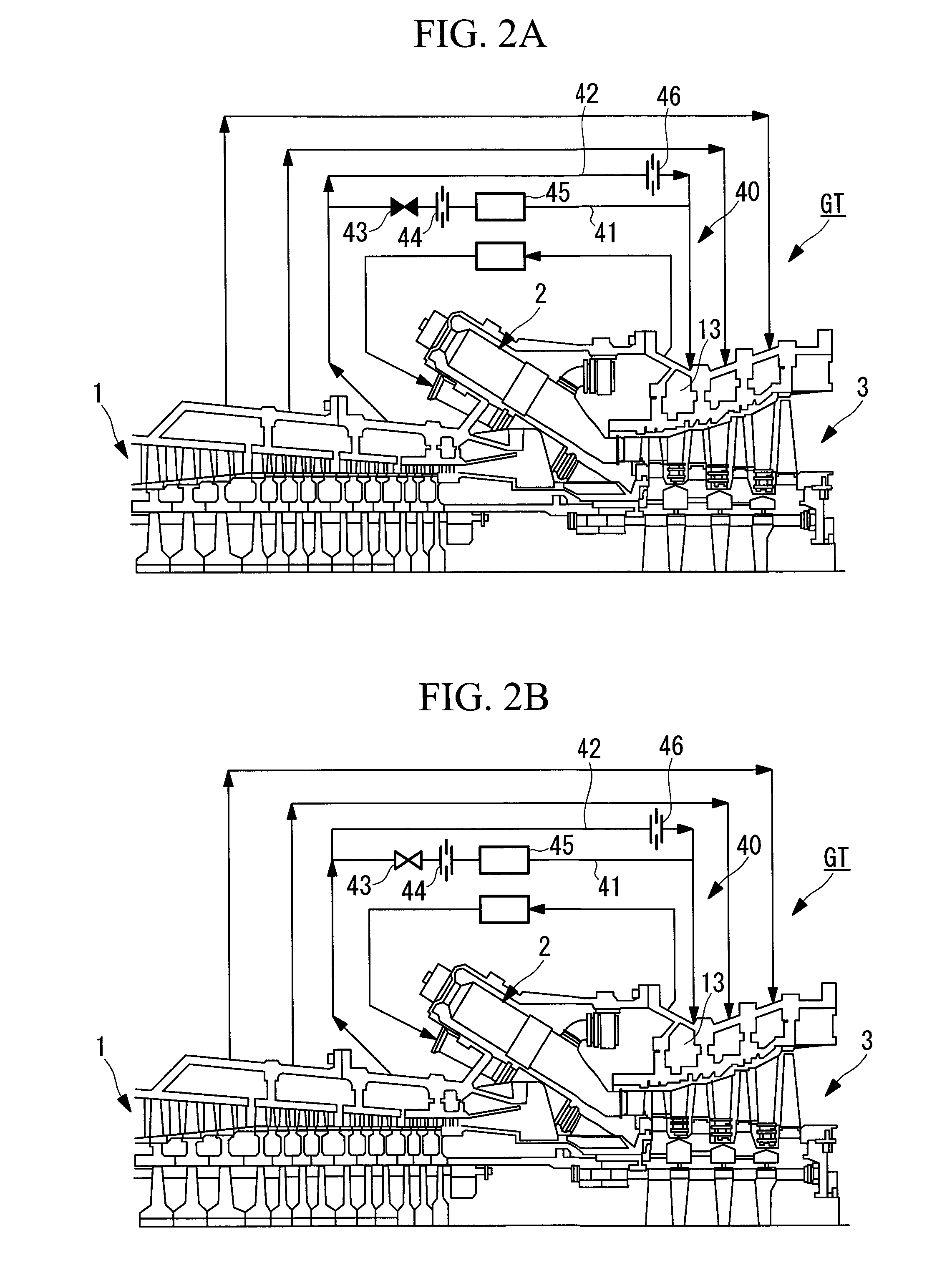Gas turbine plant
a technology of gas turbines and plants, applied in the direction of machines/engines, stators, liquid fuel engines, etc., can solve problems such as operating limitations, achieve the effects of reducing the metal temperature of the blade ring, improving the working efficiency of the gas turbine, and reducing the clearance of the tip
- Summary
- Abstract
- Description
- Claims
- Application Information
AI Technical Summary
Benefits of technology
Problems solved by technology
Method used
Image
Examples
first embodiment
[0056]A gas turbine GT shown in FIGS. 2A and 2B includes a compressor 1, a combustor 2, and a turbine unit 3. In this gas turbine GT, air compressed by the compressor 1 is supplied to the combustor 2, and fuel is combusted using the compressed air in the combustor 2. When the thus-produced high-pressure, high-temperature combustion gas is supplied to the turbine unit 3, the combustion gas flows between stator blades and rotor blades of the turbine unit 3, whereby, for example, the thermal energy of the combustion gas can be extracted as shaft output.
[0057]FIG. 1 is a partial sectional view showing the inlet of the turbine of the gas turbine GT. Turbine rotors rotate in a casing including an outer casing 11 and a blade ring 12 by allowing the high-pressure, high-temperature combustion gas supplied from the combustor 2 to flow therein.
[0058]The cylindrical blade ring 12 has, in sequence from the upstream side in the flow direction of the combustion gas, a plurality of stages of turbin...
second embodiment
[0082]Next, a second embodiment of the gas turbine GT of the present invention will be described on the basis of FIGS. 4A and 4B. Note that parts the same as those in the above-described embodiment will be denoted by the same reference numerals, and detailed descriptions thereof will be omitted.
[0083]This embodiment is applied to the case where a cooling air system 40B of the second-stage turbine stator blades T2C has no cooler. The blade ring 12 is cooled by cooling air for the second-stage turbine stator blades T2C. The cooling air forms the cooling-air flow paths. Furthermore, in this cooling air system 40B, part of the high-temperature compressed air introduced from the outlet of the compressor 1 as the rotor cooling air is used as the cooling air during start-up. Thus, the cooling air system 40B and the introduction pipe 50 for high-temperature compressed air are connected by a pair of connecting tubes 49A and 49B.
[0084]One of the connecting tubes, 49A, connects the cooling air...
PUM
 Login to View More
Login to View More Abstract
Description
Claims
Application Information
 Login to View More
Login to View More - R&D
- Intellectual Property
- Life Sciences
- Materials
- Tech Scout
- Unparalleled Data Quality
- Higher Quality Content
- 60% Fewer Hallucinations
Browse by: Latest US Patents, China's latest patents, Technical Efficacy Thesaurus, Application Domain, Technology Topic, Popular Technical Reports.
© 2025 PatSnap. All rights reserved.Legal|Privacy policy|Modern Slavery Act Transparency Statement|Sitemap|About US| Contact US: help@patsnap.com



